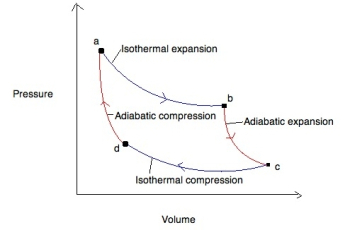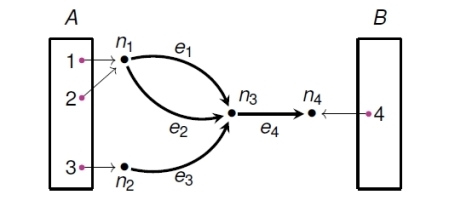John C. Baez's Blog, page 30
July 29, 2021
Structured vs Decorated Cospans (Part 2)
Decorated cospans are a framework for studying open systems invented by Brendan Fong. Since I’m now visiting the institute he and David Spivak set up—the Topos Institute—it was a great time to give a talk explaining the history of decorated cospans, their problems, and how those problems have been solved:
Structured vs Decorated Cospans
Abstract. One goal of applied category theory is to understand open systems: that is, systems that can interact with the external world. We compare two appr...
July 26, 2021
Information Geometry (Part 17)
I’m getting back into information geometry, which is the geometry of the space of probability distributions, studied using tools from information theory. I’ve written a bunch about it already, which you can see here:
Now I’m fascinated by something new: how symplectic geometry and contact geometry show up in information geometry. But before I say anything about this, let me say a bit about how they show up in thermodynamics. This is more widely discussed, and it’s a g...
July 17, 2021
Thermodynamics and Economic Equilibrium
I’m having another round of studying thermodynamics, and I’m running into more interesting leads than I can keep up with. Like this paper:
• Eric Smith and Duncan K. Foley, Classical thermodynamics and economic general equilibrium theory, Journal of Economic Dynamics and Control 32 (2008) 7–65.
I’ve always been curious about the connection between economics and thermodynamics, but I know too little about economics to make this easy to explore. There are people who work on subjects called ther...
July 14, 2021
The Ideal Monatomic Gas
Today at the Topos Institute, Sophie Libkind, Owen Lynch and I spent some time talking about thermodynamics, Carnot engines and the like. As a result, I want to work out for myself some basic facts about the ideal gas. This stuff is all well-known, but I’m having trouble finding exactly what I want—and no more, thank you—collected in one place.
Just for background, the Carnot cycle looks roughly like this:

This is actually a very inaccurate picture, but it gets the point across. We have...
July 13, 2021
Fisher’s Fundamental Theorem (Part 4)
I just finished a paper that summarizes my posts here on a result connecting natural selection to information theory:
• John Baez, The fundamental theorem of natural selection.
Check it out! If you have any questions or see any mistakes, please let me know.
Just for fun, here’s the abstract and introduction.
Abstract. Suppose we have n different types of self-replicating entity, with the population  of the ith type changing at a rate equal to
of the ith type changing at a rate equal to  times the fitness
times the fitness  of that type. Suppose the fitness...
of that type. Suppose the fitness...
June 24, 2021
Complex Adaptive System Design (Part 10)
guest post by John Foley
Though the Complex Adaptive System Composition and Design Environment (CASCADE) program concluded in Fall 2020, just this week two new articles came out reviewing the work and future research directions:
• John Baez and John Foley, Operads for designing systems of systems, Notices of the American Mathematical Society 68 (2021), 1005–1007.
• John Foley, Spencer Breiner, Eswaran Subrahmanian and John Dusel, Operads for complex system design specification, analysis and synt...
June 16, 2021
Nonequilibrium Thermodynamics in Biology (Part 2)
Larry Li, Bill Cannon and I ran a session on non-equilibrium thermodynamics in biology at SMB2021, the annual meeting of the Society for Mathematical Biology. You can see talk slides here!
Here’s the basic idea:
Since Lotka, physical scientists have argued that living things belong to a class of complex and orderly systems that exist not despite the second law of thermodynamics, but because of it. Life and evolution, through natural selection of dissipative structures, are based on non-equi...
June 15, 2021
Jacob Obrecht
This is a striking portrait of the “outsider genius” Jacob Obrecht:
Obrecht, ~1457–1505, was an important composer in the third generation of the Franco-Flemish school. While he was overshadowed by the superstar Josquin, I’m currently finding him more interesting—mainly on the basis of one long piece called Missa Maria zart.
Obrecht was very bold and experimental in his younger years. He would do wild stuff like play themes backwards, or take the notes in a melody, rearrange them in order of ...
June 10, 2021
Data Visualization Course
Are you a student interested in data analysis and sustainability? Or maybe you know some students interested in these things?
Then check this out: my former student Nina Otter, who now teaches at UCLA and Leipzig, is offering a short course on how to analyze and present data using modern methods like topological data analysis—with sustainable fishing as an example!
Students who apply before June 15 have a chance to learn a lot of cool stuff and get paid for it!
Call for ApplicationsWe are adve...
May 27, 2021
Symmetric Monoidal Categories: a Rosetta Stone
The Topos Institute is in business! I’m really excited about visiting there this summer and talking to David Spivak, Brendan Fong, Evan Patterson and many others.
They recently had a meeting with some people concerned about AI risks, called Finding the Right Abstractions, organized by Scott Garrabrant, David Spivak, and Andrew Critch. I gave a gentle introduction to the uses of symmetric monoidal categories:
• Symmetric monoidal categories: a Rosetta Stone.
To describe systems composed of int...
John C. Baez's Blog
- John C. Baez's profile
- 29 followers






